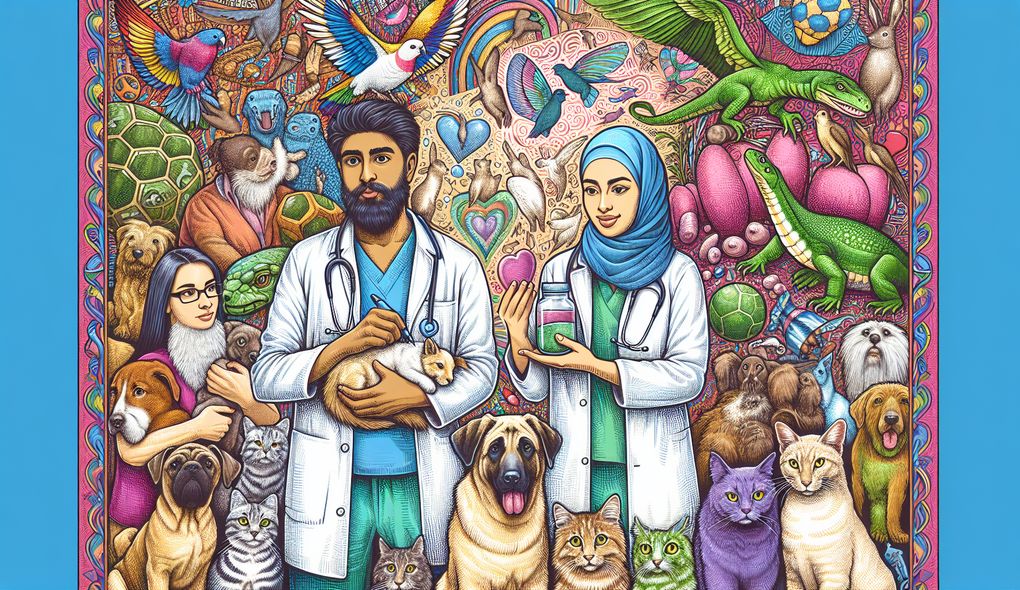How do you ensure the accuracy and reliability of research data?
INTERMEDIATE LEVEL

Sample answer to the question:
In order to ensure the accuracy and reliability of research data, I take a methodical approach by following established protocols and guidelines. This includes carefully designing experiments, collecting data meticulously, and implementing quality control measures throughout the process. I also make sure to use reliable and validated research instruments and techniques. Additionally, I conduct thorough data analysis using statistical software to identify any potential errors or outliers. Furthermore, I regularly consult with my colleagues and supervisor to review and validate the data before drawing conclusions. Lastly, I prioritize transparency and integrity by maintaining detailed documentation of my research methodology and results.
Here is a more solid answer:
Ensuring the accuracy and reliability of research data is of utmost importance in my work as a Veterinary Scientist. To achieve this, I adopt a comprehensive approach that involves several key strategies. Firstly, I meticulously plan and design research experiments, taking into account well-established protocols and guidelines. This includes considering sample size, randomization, and appropriate controls. Secondly, I am highly proficient in using statistical software and data analysis techniques to analyze the collected data. This enables me to identify any anomalies, outliers, or errors that may affect the accuracy of the results. As an advocate for animal welfare and research ethics, I prioritize adherence to ethical guidelines throughout the research process. This includes obtaining necessary approvals and ensuring the well-being and comfort of the animals under study. My proficiency in laboratory techniques and instrumentation relevant to veterinary science allows me to obtain accurate and reliable data. I have experience in handling various laboratory instruments with precision and implementing appropriate quality control measures. Moreover, I have honed my time management skills to effectively balance research and administrative tasks, ensuring that data collection and analysis are conducted diligently. Lastly, I stay up to date with the regulatory requirements related to veterinary medicines and clinical trials to ensure compliance and validity of research data. By following this comprehensive approach, I am confident in the accuracy and reliability of the research data I generate.
Why is this a more solid answer?
The solid answer provides more specific details and examples to demonstrate the candidate's expertise and experience in ensuring data accuracy and reliability. It addresses all the evaluation areas mentioned in the job description and provides a comprehensive approach to data verification. The answer could be further improved by providing concrete examples of specific quality control measures, statistical analysis techniques, and how the candidate stays up to date with regulatory requirements.
An example of a exceptional answer:
Maintaining the accuracy and reliability of research data is a top priority in my role as a Veterinary Scientist. Building on my extensive experience, I have refined a robust and systematic approach to ensure the integrity of the data I generate. To begin with, I collaborate closely with veterinary clinicians and other scientists to design and implement rigorous research protocols. This includes conducting thorough literature reviews, attending conferences, and keeping abreast of the latest scientific advancements relevant to animal health. By employing comprehensive statistical methods, such as regression analysis and multivariate modeling, I effectively identify outliers, control for confounding variables, and ensure the validity of my findings. Moreover, I actively engage in quality assurance practices, such as regular calibration and validation of laboratory equipment, as well as conducting blind assays and reproducibility checks. These measures guarantee the accuracy and reliability of the data I collect. Furthermore, I stay vigilant about ethical considerations and regulatory requirements. I consistently maintain open communication with institutional review boards and animal care and use committees to ensure compliance with ethical guidelines and animal welfare standards. I also actively contribute to the scientific community by publishing my research findings in reputable journals and attending conferences to present my work. Overall, my exceptional dedication to maintaining data accuracy and reliability sets me apart as a Veterinary Scientist.
Why is this an exceptional answer?
The exceptional answer goes beyond the solid answer by providing more specific details about the candidate's approach to ensuring data accuracy and reliability. It highlights the candidate's collaboration with veterinary clinicians and other scientists, their use of advanced statistical methods, and their commitment to quality assurance practices. Additionally, the answer demonstrates the candidate's proactive engagement with ethical considerations and regulatory requirements, as well as their active contribution to the scientific community through publications and conference presentations. This answer portrays the candidate as highly knowledgeable, meticulous, and dedicated to maintaining the integrity of research data.
How to prepare for this question:
- Familiarize yourself with established protocols and guidelines for research design and data collection.
- Stay updated on the latest statistical software and data analysis techniques to effectively analyze research data.
- Take courses or workshops on research ethics and animal welfare to enhance your understanding of these important aspects.
- Gain hands-on experience with various laboratory techniques and instrumentation pertinent to veterinary science.
- Develop strong time management skills to balance research and administrative tasks effectively.
- Stay current with the regulatory requirements related to veterinary medicines and clinical trials to ensure compliance.
What are interviewers evaluating with this question?
- Analytical and problem-solving skills
- Experience with statistical software and data analysis
- Understanding of animal welfare and research ethics
- Proficiency in laboratory techniques and instrumentation pertinent to veterinary science
- Time management skills to balance research and administrative tasks
- Knowledge of regulatory requirements related to veterinary medicines and clinical trials

